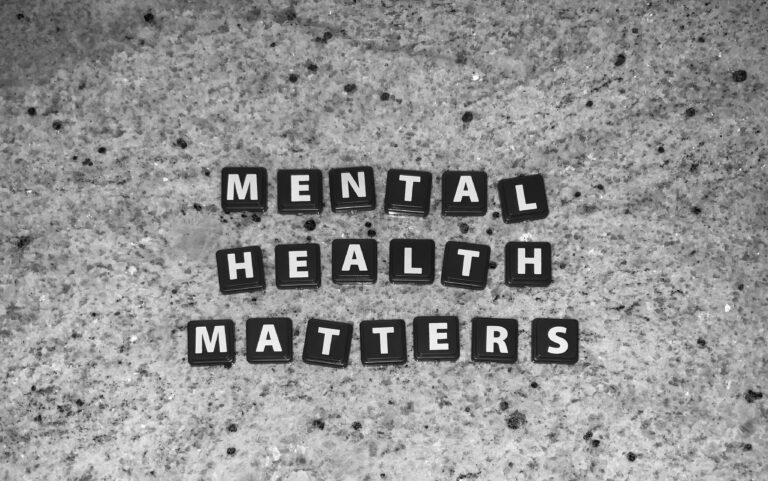Mental health touches every corner of our society, yet silence still surrounds it. Approximately 1 in 5 adults experience mental health conditions each year, but countless individuals continue to suffer alone, trapped by shame and widespread misconceptions about behavioral health struggles. Despite increased awareness, stigma and misconceptions have persisted for decades, making it difficult to change attitudes and behaviors.
This silence creates invisible barriers that prevent people from accessing life-changing treatment and support. When we avoid talking about behavioral health, we inadvertently reinforce the stigma that keeps people isolated in their darkest moments, even though behavioral health issues are among the leading public health concerns.
However, there’s incredible power in breaking this silence. Open conversations about behavioral health don’t just reduce stigma—they transform lives, strengthen communities, and create pathways to healing that wouldn’t exist otherwise.
Throughout this guide, you’ll discover how stigma affects help-seeking behavior, explore the proven benefits of open dialogue, learn practical strategies for starting meaningful conversations, and understand how awareness directly leads to positive action and recovery.
Understanding Behavioral Health Stigma
Behavioral health encompasses both mental health and substance use disorders, affecting how people think, feel, and behave. These conditions often present with various symptoms that can affect daily functioning. Despite affecting millions of Americans, misconceptions about these conditions persist in many communities.
Common Myths about Mental Health Conditions
Common myths include beliefs that mental health struggles represent personal weakness, that people can “snap out of” depression or anxiety, or that individuals with behavioral health conditions are dangerous or unpredictable. Another widespread myth is that seeking help is a sign of failure or that therapy is only for “serious” problems. Behavioral health conditions are recognized as medical disorders requiring appropriate care. These harmful stereotypes create real-world consequences that extend far beyond hurt feelings.
Cultural and Social Influences on Behavioral Health Stigma
Cultural factors significantly influence how behavioral health is perceived and discussed. Some communities view seeking mental health treatment as bringing shame to family members, while others may interpret emotional struggles through purely spiritual or moral lenses. Social media can amplify these misconceptions, presenting unrealistic standards for emotional well-being.
Impact of Stigma on Treatment and Recovery
Research shows that stigma directly impacts treatment outcomes. Studies indicate that individuals who experience high levels of stigma are significantly less likely to seek professional help, more likely to discontinue treatment prematurely, and often delay getting support until their conditions become severe. Stigma can also prevent individuals from addressing risk factors that contribute to crises such as suicide.
Personal Barriers and the Role of Support Systems
Personal factors also contribute to this silence. Many people internalize negative messages about behavioral health, developing self-stigma that becomes another barrier to recovery. Fear of discrimination in employment, housing, or relationships keeps individuals from acknowledging their struggles or accessing appropriate care. Strong support systems are crucial in helping individuals overcome stigma and access the care they need.
The Healing Power of Open Conversations
When people openly discuss behavioral health, something remarkable happens—these experiences become normalized rather than shameful secrets. Open dialogue reduces the isolation that often accompanies mental health struggles, helping individuals realize they’re not alone in their experiences. Open conversations also promote overall wellness by reducing isolation and encouraging proactive care.
Research consistently demonstrates that communities with higher levels of mental health literacy and open discussion have better treatment outcomes and recovery rates. One longitudinal study found that areas implementing community-wide behavioral health awareness campaigns saw a 40% increase in help-seeking behavior within two years.
These conversations create powerful ripple effects throughout communities. Group discussions and peer-led initiatives can be especially helpful in normalizing behavioral health conversations. When one person breaks their silence, others can do the same. This phenomenon, known as social proof, demonstrates how individual courage can inspire collective change and healing.
Practical Tips on Starting a Conversation
Creating Safe Spaces
Meaningful behavioral health conversations require intentionally safe environments where people feel heard and supported. These spaces prioritize emotional safety, confidentiality, and non-judgmental responses. Ensuring emotional and physical security in these settings is essential for fostering open and supportive dialogue.
Begin conversations with empathetic language that validates experiences rather than offering immediate solutions. Instead of saying, “Have you tried exercising more?” Consider asking, “How has this been affecting your daily life?” This approach demonstrates genuine interest in understanding rather than fixing.
Active listening forms the foundation of supportive conversations. Give your full attention, avoid interrupting, and reflect on what you hear to ensure understanding. Phrases like “That sounds challenging” or “Thank you for sharing that with me” acknowledge the courage required to open up about behavioral health struggles.
Respect boundaries and follow the other person’s lead regarding how much they want to share. Some individuals may need multiple conversations before feeling comfortable discussing deeper struggles, while others might share extensively once they feel safe.
Workplace and Community Initiatives
Successful behavioral health initiatives often start small but create lasting cultural shifts. Many organizations now implement Mental Health First Aid training, teaching employees to recognize signs of behavioral health struggles and respond appropriately. Treatment programs, including inpatient and outpatient options, are often integrated into workplace and community behavioral health initiatives to provide comprehensive care for those in need.
Schools have introduced social-emotional learning programs that normalize discussions about feelings, stress management, and help-seeking behavior from an early age. Prevention and early intervention programs for children and youth are also being implemented to address behavioral and emotional issues before they develop into more serious conditions. These programs show promising results in reducing stigma and increasing resilience among young people.
Community initiatives might include behavioral health awareness events, peer support groups, or partnerships between local organizations and mental health providers. Comprehensive support systems are crucial in promoting behavioral health, ensuring individuals have access to the necessary resources and networks. The key is consistency—one-time events have limited impact compared to ongoing efforts that keep behavioral health conversations active and accessible.
When Awareness Leads to Action
Increased awareness about behavioral health directly correlates with improved help-seeking behavior and treatment engagement. Communities prioritizing mental health education see measurable improvements in their residents’ well-being and quality of life. Increased access to behavioral health services, mental health services, and disorder services provides the benefit of early intervention, comprehensive support, and improved outcomes for individuals facing mental health and substance use challenges.
Statistics support this connection between awareness and action. Regions with robust behavioral health literacy programs report 25% higher rates of early intervention and 30% better treatment completion rates than those without such initiatives. Comprehensive health services, including behavioral health services and mental health services, play a vital role in supporting individuals with co-occurring mental health and substance use issues.
The city of Geel, Belgium, provides an inspiring example of community transformation. For centuries, this community has integrated individuals with mental health conditions into daily life, creating a culture where behavioral health struggles are met with understanding rather than fear. Integrated behavioral health services in such communities address co-occurring conditions, including opioid use disorder, addiction, and the use of other substances. This approach has resulted in remarkably low stigma levels and high recovery rates.
Peer support plays a crucial role in this process. Individuals with lived experience of behavioral health challenges often become powerful advocates and sources of hope for others facing similar struggles. Their stories demonstrate that recovery is possible and help is available.
Addressing the use of substances, including opioids and other substances, is an essential part of community behavioral health efforts. For more information about behavioral health services, individuals and providers can visit the Medicaid website for helpful resources and guidance.
Mental Health Resources for Continued Support
Multiple resources exist for individuals seeking behavioral health support or wanting to learn more about these topics. The National Alliance on Mental Illness (NAMI) offers educational materials, support groups, and helpline services accessible throughout the United States.
Crisis resources include the 988 Suicide & Crisis Lifeline, available 24/7 for immediate support during mental health emergencies. Phone: 988. These services assist with urgent mental health needs, including crisis intervention, emotional support, and connection to local resources. Text-based support is available through Crisis Text Line by texting HOME to 741741.
Online platforms like Mental Health America provide screening tools, educational resources, and directories for finding local mental health providers. These resources help individuals take initial steps toward getting support while maintaining privacy and convenience.
For those wanting to support others, consider mental health first aid training, volunteer opportunities with behavioral health organizations, or simply committing to regular check-ins with friends and family members about their emotional well-being.
Your Voice Matters in Creating Change
Open conversations about behavioral health reduce stigma, increase help-seeking behavior, and build stronger, more supportive communities. Every conversation matters—sharing your experiences, asking how someone is truly doing, or simply listening without judgment.
Small actions create significant ripple effects. When you normalize discussions about behavioral health in your circles, you give others permission to be vulnerable and seek the help they deserve. Your willingness to engage in these conversations contributes to a larger cultural shift toward acceptance and understanding.
The evidence is clear: communities that talk openly about behavioral health see better outcomes for everyone. Reduced stigma leads to earlier intervention, better treatment compliance, and stronger recovery rates.
This week, commit to having one meaningful conversation about behavioral health. Whether checking in with a friend, sharing your experiences, or simply asking someone how they’re doing, your voice contributes to breaking the silence that has surrounded behavioral health for too long.
Medical Disclaimer:
This content is for informational purposes only and is not intended as medical advice, diagnosis, or treatment. Always consult with a qualified healthcare professional before making any changes to your diet, exercise, or health routine. Never disregard professional medical advice or delay seeking it because of something you have read on this site.







